No, It’s Not Time For A New War On Booze
A supposed conservative calls for massive increases in taxes on alcohol.
In a piece posted at Salon, Reihan Salam argues that taxes on alcoholic beverages should be increased substantially as part of a broader effort to discourage people from drinking alcohol:
Though it is true that I was raised in a Muslim household, it is not my intention to impose sharia law on you and yours. As someone who came to drinking late in life, I still marvel at its disinhibiting effects and I genuinely appreciate the good it can do by, essentially, helping awkward people have fun. I also think there is much to be said for psychoactive substances like MDMA, or Molly, which have enormous therapeutic potential.
But alcohol is crazily dangerous, and it needs to be more tightly controlled. Everyone knows that Prohibition was a disaster. What most of us forget is that the movement for Prohibition arose because alcohol abuse actually was destroying American society in the first decades of the 20th century, and the strictly-regulated post-Prohibition alcohol market was shaped by still-fresh memories of the pre-Prohibition era.
(…)
Why would I, a great lover of the free enterprise system, want the alcohol market to be more heavily regulated? Precisely because I’m a believer in the power of the profit motive, I understand how deadly it can be when the product being sold is intoxication. For-profit businesses exist to increase sales. The most straightforward way to do that is not to encourage everyone to drink moderately, but to focus on the small minority of people who drink the most. That is exactly what liquor companies do, and they’ll do more of it if we let Big Liquor have its way. In Marijuana Legalization: What Everyone Needs to Know, the authors estimate that at current beer prices, it costs about $5 to $10 to get drunk, or a dollar or two per drunken hour. To get a sense of what the world would look like if that price fell significantly, go to a typical town square in England on a weekend night, where alcohol-fueled violence is rampant, or to Russia, where the ruling class has used cheap vodka as a tool to keep the population drunk, passive, and stupid for generations.
We shouldn’t be satisfied with keeping the per dollar cost of getting drunk where it is today. We should make it higher. Much higher. Kleiman and his colleagues Jonathan P. Caulkins and Angela Hawken have suggested tripling the federal alcohol tax from 10 cents a drink to 30 cents a drink, an increase that they estimate would prevent 6 percent of homicides and 6 percent of motor vehicle deaths, thus sparing 3,000 lives (1,000 from the drop in homicides, 2,000 from safer highways) every year. Charging two-drink-per-day drinkers an extra $12 per month seems like a laughably small price to pay to deter binge drinking. Then, of course, there is the fact that a higher alcohol tax would also raise revenue. If you’re going to tax tanning beds and sugary soft drinks, why on earth wouldn’t you raise alcohol taxes too? If anything, 30 cents a drink isn’t high enough. Let’s raise the alcohol tax to a point just shy of where large numbers of people will start making illegal moonshine in their bathtubs.
Kleiman et al. have also suggested creating separate “drinking licenses.” Bars wouldn’t just check the IDs of the young-looking. They’d check everyone’s drinking licenses, and those who’ve had them revoked for some reason (drunk driving, let’s say) would be bounced.
In support of his arguments, Salam cites so-called “nightmare scenarios” in Russia and the United Kingdom, where cheap access to alcohol led to massive increases in alcohol consumption and, in some measurable ways, the health and other effects often associated with heavy alcohol consumption. There’s no arguing with Salam’s facts in these cases, and especially not in the case of Russia and the former Soviet Union, where heavy alcohol consumption was a way of life for decades to the point where it has had noticeable and measurable impacts on the health and life expectancy of Russians. It’s worth noting, though, that to a large degree this heavy consumption was due to the manner in which the state used alcohol as both a method of social control and a source of revenue. The Soviet/Russian drinking problem didn’t exactly arise in a free market situation.
As for Great Britain, Andrew Stuattford at National Review pours some cold water on Salam’s contention that the nation is in the middle of some kind of binge drinking disaster:
While there was indeed a substantial jump in alcohol consumption in the UK the 1990s (and it is true that the country’s town centers are not always the prettiest of places on Friday and Saturday nights), much of the fuss over binge-drinking Britain was a classic moral panic, a great deal of it brought on by the decision to permit extended pub opening hours in England and Wales in 2005 (the Scots had liberalized their rules earlier). Moral panics generally make for bad policy, but, despite the efforts of David Cameron (a man hopelessly susceptible to moral panics and a reliable enthusiast for big government initiatives, the supposedly ‘conservative’ prime minister wanted to fix a minimum alcohol price, a proposal that fortunately came to nothing) not much was done in response other than the introduction of some worthwhile public health education initiatives on the problems caused by hitting the bottle too hard.
Despite this relative lack of government action on the issue, Stuattford points out that there are plenty of signs (here, here, here and here) that alcohol consumption in the U.K. has declined since the 1990s, and that many of the most deleterious effects of binge drinking that were once common in English towns in the 1990s have, if not disappeared at least become far more subdued than they used to be. This happened, he notes, without government action but because “society is correcting itself, as it often tends to do when the Nanny State keeps out of the way.”
What this suggests, of course, is that Salam’s contention that government action is required to address a supposed problem with drinking with the United States simply doesn’t hold water. For one thing, it’s unclear that the “problem” is as bad as he suggests in his post. Yes, Americans drink a lot, but even on a per capita basis we are not at the top of the list worldwide. Additionally, enforcement of drunk driving laws has clearly had an impact on society in that it is no longer considered socially acceptable to drive after having had a little too much to drink, back in the 1970s and earlier that most certainly was not the case. To the extent there is a “drinking problem” in the United States, it arguably exists on college campuses where much of the drinking that takes place is illegal because the people doing it are underage. That problem, arguably, exists precisely because of the illegal nature of the drinking so, obviously, more laws aren’t going to help the situation at all.
The other problem with Salam’s proposal, though, is that there’s no reason to believe that it would work. Even if we raise taxes on alcohol, it seems fairly obvious that people will continue buying it in mass quantities. They will do this for a very simple reason…… people like to drink alcohol. This was proven beyond the shadow of a doubt in the Prohibition Era when Americans by the millions became scofflaws because they wanted a drink, and all that the Volstead Act succeeding in doing was to empower an entire generation of organized crime in much the same way the War On Drugs has empowered drug gangs around the world. While I’m not suggesting that an America with substantially higher alcohol taxes will lead to a return to bootlegging, it’s not inconceivable that such a world would see a substantially larger black market than we see today.
Salam calls himself “a great lover of the free enterprise system,” but the fact that he is proposing what, in the end, is a massive government effort to control social behavior. Rather than relying on government force in the form of excise taxes, Salam would do better to trust the free choices of individuals. After all, notwithstanding what he contends are taxes on alcohol that are “too low,” we do not live in a country where alcohol abuse is a widespread social problem, we have seen drunk driving change from something that people laughed about to something that earns one social pariah status, and we don’t have nearly the health problems that one would expect to see in a nation with a population of people with heavy drinking problems. People are able to enjoy alcohol and, for the most part, control themselves. Yes, there are people who cannot do that, but those people have always existed and always will exist and they are a small part of the population of people who drink on a regular basis. It is inappropriate to base social policy on the problems of a small portion of the population, and Salam would do well to trust the free choices of individuals that he claims to respect.
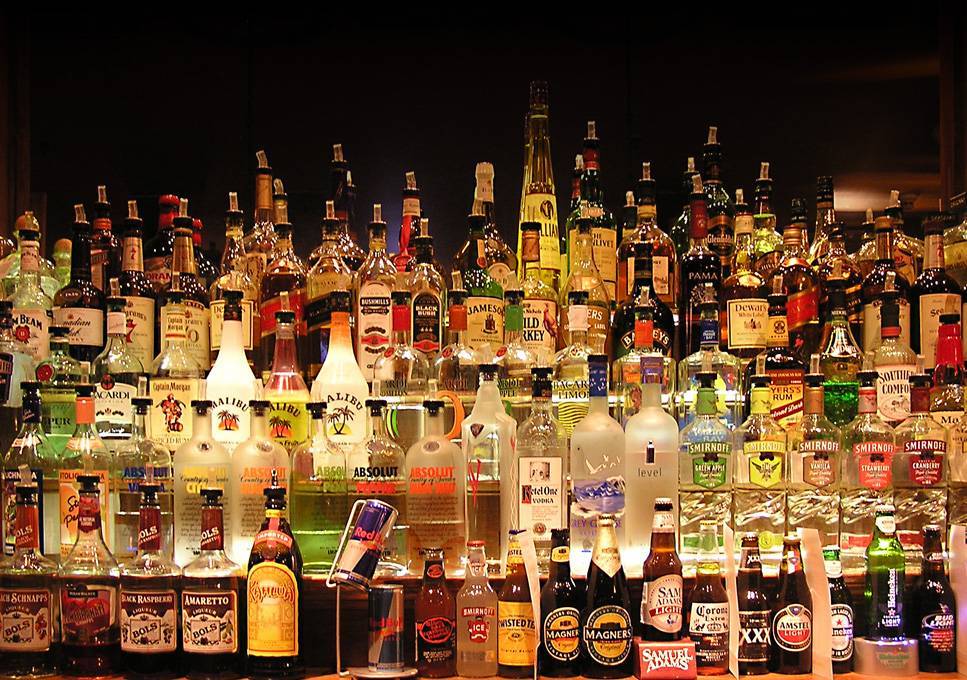


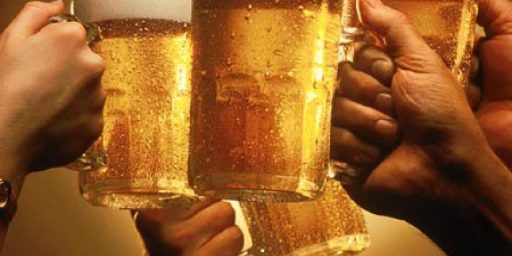
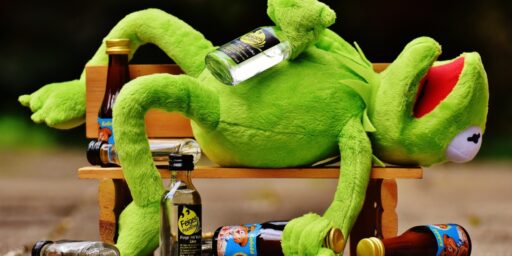
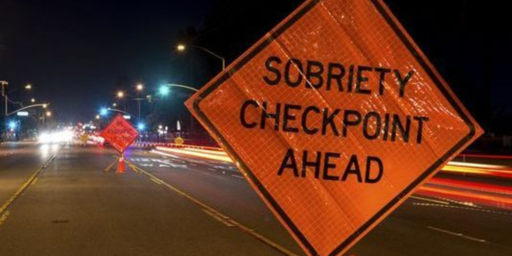
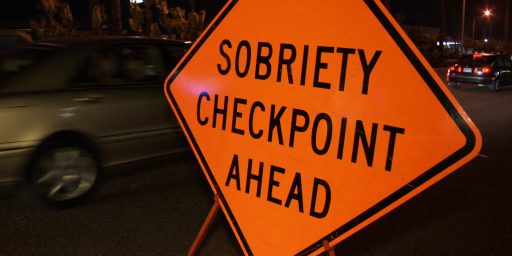
From my cold, dead hands.
Can we, uhh, stop with this “otherizing” of government as somehow outside of, and strangling, society? You quote this dude favorably in one breath and then undercut his point in the next. Literally, you decry Salam’s call for a “massive government effort to control social behavior” in your final paragraph, but drunk driving laws (laws, Mataconis, which are government efforts) are great because they stigmatized what was then dominant behavior. Your principles are all over the place here.
So adding twenty cents to a tax on alcohol that already exists counts as government force now? I get the principle you’re arguing (or think you’re arguing), and I see that Salam goes too far with suggesting “drinker’s licenses” (I’m not a libertarian, but that sounds completely batty), but the basic idea he presents doesn’t really strike me as him disrespecting the free choices of individuals. Rather, he understands how irrational we can get around normal products, how compounded this irrationality becomes with intoxicants, and that making it more expensive will have fringe benefits to society that don’t harm free enterprise. What’s to hate?
First, drinking age should be reduced back to 18 years old. Kids need to learn to drink in safe environments and to learn moderation as a way of life.
Second, make the price too high and there will be really bad liquor out there. Prohibition proved this.
Third, if you want to encourage safe drinking, then greatly increase the penalties for DWI.
Finally, as noted, Prohibition was the greatest national public policy debacle in the history of this country.
I understand the problem all too well – I was in the military for 30 years, and a lot of the men who served under and alongside me were very heavy drinkers, even by “young men in the military” standards.
Still, I disagree with (most) efforts to produce social control via substances, either approval and encouragement (Russia and Vodka) or denial and propaganda (The War On Drugs). Yes, the objective may (or may not) be achieved, but the cost is too great.
The net effect will be to keep poor and working class folks from drinking. It will have no effect on the upper classes. Which makes this a perfect prefect Republican proposal. Screw the working man.
Typical Republican nonsense.
Spending has to paid for unless it’s spending they want.
No new taxes…unless it’s taxes they want.
A once proud and important party has been reduced to nothing more than circus clowns…and not even good circus clowns…but the kind that smell like 4 day-old socks and cigarettes and cheap liquor and scare little kids.
Keep in mind the real reason we ended prohibition was the Federal, State and municipal governments needed the tax revenue. There is very little evidence that drinking increased after prohibition ended only illegal drinking. I would suggest that the same would be true of all other drugs.
@Scott: I actually agree about lowering the drinking age, although that’s politically impossible IMO.
I think raising the penalty for DWI is a great idea – there isn’t much of a DWI problem in Sweden, for example. Of course, they take your car there if you’re convicted of DWI, and you’re largely ostracized.
Where I live now (in the US), there were discussions of doing something similar a few years ago, and it was opposed by the police, who basically said that it was too much trouble.
@C. Clavin:
For what it’s worth I drink cheap beer, expensive bourbon, and increasing the tax ain’t gonna change my habits one little bit.
@Electroman: When I lived in Germany the penalties for DWI were so draconian that the police would rarely charge someone.
As with any sin tax, you have to be careful not to set the tax so high that you generate black market activity.
However, I think we probably could raise taxes on booze a bit w/o doing that. I would grumble, but I’m not gonna go make moonshine. I might decrease my consumption a bit, which would have positive health effects. I love my microbrews and red wine, so this would actually hit me. So be it.
Look, I get it, you’re a libertarian and you basically hate all taxation. As taxes go, however, a tax that brings in revenue and/or reduces harmful behavior is a good tax. It’s better than taxing healthy or otherwise beneficial behavior, Doug.
@Electroman:
I’m hoping for self-driving cars to solve the remaining DWI problem. We’ve come a long, long way, but further gains strike me as difficult to acheive in our country because there are lots of areas where you have to drive to get to the bar. More public transit is always nice, but that only makes sense in dense areas (which typically already have some, and failing that taxis). Out in the boonies, however, public transit ain’t gonna happen, and for good reason. So I’m hoping for Deus Ex Googla…
@Rob in CT:
I hadn’t realized that use of self-driving cars.
Now I’m excited about them.
I am always skeptical of the notion that moderate increases in prices will lead to a diminution of binge drinking. It would seem to me that people who binge drink don’t much care about the quality of their libations and will, therefore, just binge with whatever swill in available.
I would be more persuaded by a moderate tax increase to fund health care, to be honest.
Excessive taxing on alcohol will only lead to a black market for booze. i caught this special last week on the Klan vs the Mob and how the Klan was one the driving forces for prohibition. The Mob flourished during Prohibition while the Klan was decimated. The message is don’t %#% with someones right to Drink and you will suffer if you do.
I believe in the free market, but… Salam is providing another example of the eternal, immutable bedrock principles of conservatism. Does he provide weekly email updates?
Prohibition, IIRC, had a very strong classist element. It would prevent the poor from drinking, but the wealthy were justifiably confident they would be able to work around it. Salam is proposing the same classist prohibition, via a regressive tax, so maybe he is still in line with conservative principles.
So we haven’t even learned enough from history and want to repeat our accidents?
The man is an ass. If he really wants to get on a hobby-horse that would do some good, have him go after the idiots who text or phone while driving.
Well, incentives matter. If booze is more expensive, then people will spend less money on booze. Yes, cigarette smuggling is HUGE problem, on the other hand, one cannot deny that there are far less people smoking today than in recent past and that´s in part due to state nannyism. There are people that are are alive and healthy today, thanks to the Nanny State. Countries where cigarettes are cheap, like Turkey and East Timor, faces problems with tabagism.
It´s true, one can argue that there are no cheap popular distilled beverages in the US market(like tequila in Mexico, rum and cachaça in Latin America in general). On the other hand, yes, taxes and social pressure can be used to reduce alcohol consumption. The nanny state works, regardless of what Conservatives say.
No one is talking about prohibition. The war on drugs is a failure, but the efforts to reduce tobacco consumption(That did not include prohibition) are not.
What would really happen if they did that in MO? Cut income taxes by an equal amount, so that gov’t is increasingly funded by the fewer and fewer for the benefit of the many. This is what they did with the lottery, gambling, tobacco, etc etc.
@Steven L. Taylor:
In a higher-booze-tax-environment, maybe we would generate fewer binge drinkers in the first place. If beer was more expensive in college, many of us would probably have drunk less. We were *already* drinking the cheapest swill we could find (Milwaukees Best, Natural Light, etc), and the beer budget was strained nonetheless. When we bought hard booze, it was the same thing (e.g., handles of Popov vodka, which smells like paint thinner).
Yes everyone, changing a tax from 10 cents a drink to 30 cents a drink is equivalent to Prohibition.
Prohibition is not the analogue for this. Andre Kenji has the right on this: this is closer to what we did with cigarettes.
Salam not so-obliquely suggests lower taxes on herb than on booze. If we’re going to have sin taxes – and we are going to have these irresistible taxes – then different magnitudes for different sins is a good feature.
@Steven L. Taylor: Well, the “six percent reduction in homicides and motor vehicle deaths” could be spun as a tax for health care.
And I think people are missing Salam’s possible reductio ad absurdum at play here: he specifically writes:
I don’t think Salam is for more taxes so much as consistent taxation. He’s taking liberals to task for supporting taxes on such things as sugar and UV radiation, but leaving out something that we know has a direct link to increased death.
@Rob in CT: That’s a fair point.
@Tillman: True.
A few years ago, like many liberals, I went searching for conservatives who could speak for their side and make a credible case. (This was how I found OTB.) Reihan Salam’s name came up frequently. I tried following him briefly. I didn’t find him to be usefully instructive, he isn’t that good a writer or analyst, as evidenced above. But mostly he doesn’t represent anyone but himself. He, and most other conservative intellectuals have no actual relationship to conservative politics or policy.
Last night Doug J at Balloon Juice commented on a Rick Perlstein article on the futility of searching for “Honest Conservatives”. Doug J ends his commentary by mentioning our Doug as a mostly honest conservative. Although in the context of Doug’s feigned surprise that Ken Blackwell is a looney toon.
So kudos Doug, on your increasing visibility. But yes, many (all?) of your fellow travelers are, and always have been, nuts. And apologies for the awkward segue from Salam.
@Ron Beasley: Also, one of the big drivers for repeal of prohibition was from the wealthy. Prohibition was enabled by the implementation of the income tax which the rich hated. The drive to repeal was pushed by Pierre DuPont who wanted to tax alcohol again.
If you’re going to make even a pretense of a dispassionate, fact-based assessment of Salam’s proposal, you’re going to have to dig into this study and find out whether it is credible or not. If it is, you have no case — the benefits clearly outweigh the costs. If it is not, it is important to explain why, so that others are not fooled. But you cannot have an opinion worth sharing until you have addressed the study on which he bases his claims.
BTW, kudos to @Tillman for three excellent observations in one thread (so far).
@Rob in CT:
So true. I’ve seen whole floors choose to pool their remaining nickels together to scrap up some Ramen but god forbid they touch the beer money! TGIF!
@ Doug:
A few cents on the dollar isn’t going to make people automatically turn to moonshine. I love how there’s an assumption that your average beer-drinker is going to convert to bathtub gin at the drop of a hat. There’s an inherent desperation (and dearth of tastebuds) needed for that. You can get moonshine now if you know where to look and its cheap – why isn’t it flourishing? Cause it’s crap you don’t touch till you really really have to, that’s why. Given a choice between a slightly more expensive Labatt’s or a bottle of lightning, you’re not going to get many moonshine takers. They’d rather not eat for a few days and get the stuff they want (see above starving seniors). They’ll make cuts elsewhere in the lives, for better or for worse.
@DrDaveT: The hat trick!
@KM: There is such a thing as good moonshine. And by good moonshine, I mean on par with or better than, say, Everclear, which can be used in emergencies to degrease engines.
I have relatives, or friends of relatives, not sure which, on my father’s side whose families went to moonshining in Prohibition and never looked back. I’ve had some of their stuff, and if you’re a connoisseur of the 180-proof alcohols, it definitely tastes like a more flavorful and rewarding way to feel as if your mouth and throat are on fire.
@Electroman: I’m surprised. When you tell police forces they can impound and keep anything as long as they accuse its owner of drug possession, they’re usually right with the game.
@Tillman: No absinthe? (That’s the only ultra-high-proof stuff I’ve ever tasted.)